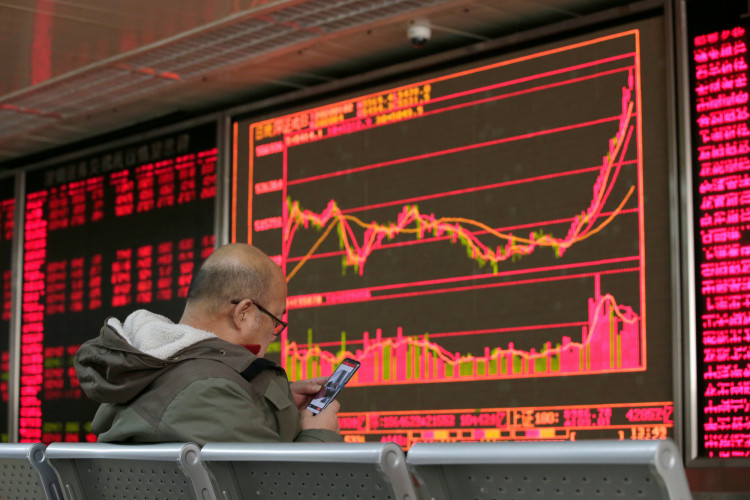China's stock market witnessed a robust rebound this week, driven by investor optimism around potential economic stimulus measures. This recovery comes amid a backdrop of global market volatility and the anticipation of crucial inflation data from the United States. While the rally reflects renewed confidence in Beijing's efforts to bolster economic growth, uncertainty persists regarding the scale and impact of the government's fiscal strategies.
Chinese mainland shares gained early in the Asian session as the People's Bank of China implemented a 500 billion yuan liquidity injection into the capital markets, a move that was part of a broader stimulus package announced in late September. The blue-chip CSI300 index initially responded with a strong rally, closing up just over 1% after recovering from the previous day's steep 7% decline. The market's gains, however, were somewhat tempered by lingering doubts about the comprehensiveness of the announced measures.
Hong Kong's Hang Seng index displayed a more dramatic recovery, surging over 3% following a dip earlier in the week. The index's rise underscored investor optimism, despite ongoing concerns about the lack of specific details regarding the stimulus. Analysts like Richard Tang, a China strategist at Julius Baer, suggest that investors are hoping for a substantial fiscal package, estimated to be between 2 trillion and 3 trillion yuan, to be unveiled in the coming weeks.
"The market is clearly expecting significant fiscal measures from Beijing," Tang said. "While the initial response has been positive, much will depend on the specifics of these announcements and how they address the broader economic challenges facing China."
This rebound in Chinese stocks coincides with heightened global market sensitivity to U.S. inflation data, which could influence Federal Reserve policy on interest rates. In anticipation of the U.S. Consumer Price Index (CPI) figures, the 10-year Treasury yield in the United States surged to its highest level in over two months, signaling investor concern about potential interest rate hikes. Economists polled by Reuters expect core inflation to hold steady at 3.2% year-over-year.
Kenneth Broux, head of corporate research FX and rates at Societe Generale, highlighted the stakes, noting that the U.S. economic data could play a pivotal role in determining whether the Federal Reserve pursues additional rate cuts this year. "A strong core reading could trigger a second wobble in the bond market," Broux warned, emphasizing the delicate balance between inflation control and economic growth.
The ripple effects of the Chinese market's recovery were felt across global markets, although European shares failed to sustain the momentum seen in Asia and the U.S. The Stoxx 600 index in Europe dipped slightly by 0.17%, while the German 10-year bund yield climbed to a five-week high, reflecting caution among European investors ahead of both U.S. and domestic economic developments. France's fiscal policy, with its planned tax hikes and spending cuts, also added a layer of uncertainty to the European markets.
In the commodities sector, oil prices rose as markets reacted to both the anticipation of increased Chinese demand and geopolitical tensions in the Middle East. Brent crude futures edged up by 1.3%, while U.S. West Texas Intermediate (WTI) futures saw similar gains, highlighting investor sensitivity to global supply and demand dynamics. Gold prices also ticked up, with investors seeking safe-haven assets amid the broader market volatility.
Despite the optimistic rally, the underlying volatility in China's stock market remains a concern. Last week, Chinese stocks behaved much like a meme stock, with a surge in speculative trading driven by retail investors. Platforms like Interactive Brokers reported that Chinese tickers were among the most actively traded, with leveraged ETFs such as YINN leading the charge. This speculative behavior has raised eyebrows, with Chinese President Xi Jinping expressing clear disdain for market frothiness even as he pushes for economic stability.
"The Chinese government's challenge is to stimulate growth without creating a bubble in asset prices," said Tang. "Beijing's cautious approach reflects its intent to keep the market grounded, avoiding the pitfalls of speculative excess."





